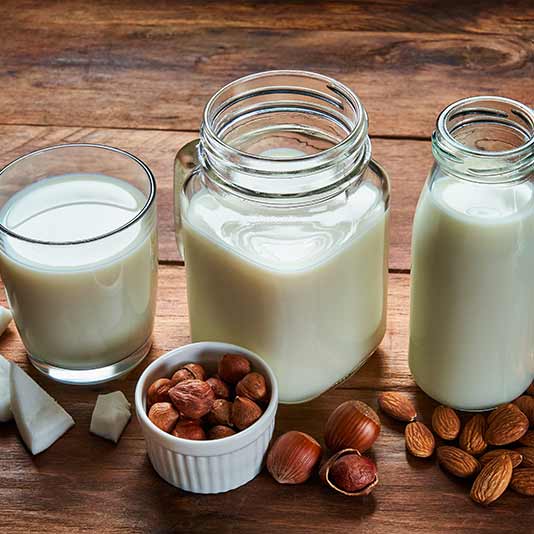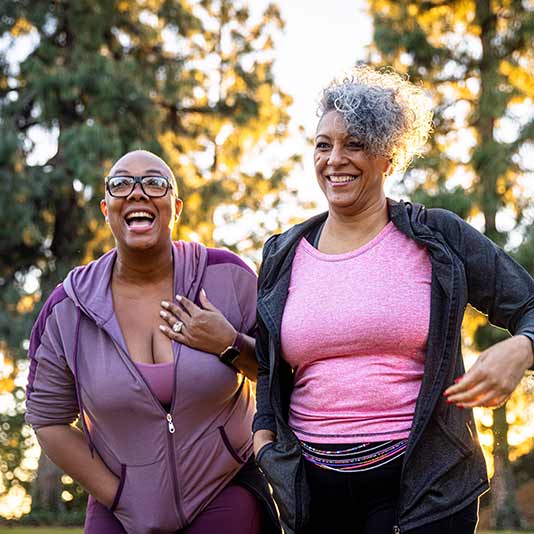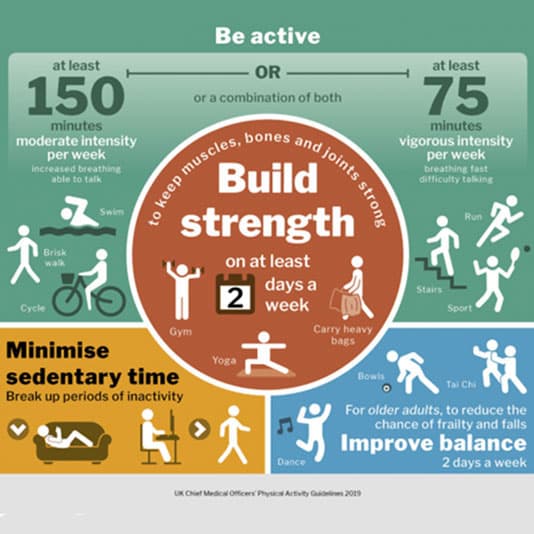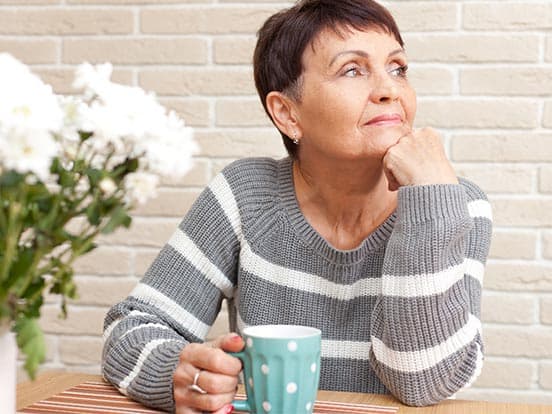Menopause and bone health: A guide to eating well for your bones
When going through menopause many women experience noticeable symptoms which impact their lives, such as brain fog or hot flushes, however, there are some silent symptoms which aren’t as easy to spot. The amount of oestrogen your body produces decreases during menopause, and this increases the risk to your bone health if left unchecked.
Bone is a living tissue: it is constantly being broken down and regenerated. Once a woman is over the age of around 30 there is more bone breakdown than there is reformation, and as a result, bones gradually become less dense over time. During perimenopause and menopause, the rate at which bone is broken down accelerates further, resulting in bones losing strength. This in turn increases your risk of developing osteoporosis.1 As with your heart health, you cannot see or feel changes in your bone health.
It is important to be aware of these potential risks that come with menopause so that you can take informed, protective action to optimise your health.
Calcium is key
Bone health is a major consideration for women of menopausal age. The current calcium recommendation for adults in the UK is 700mg a day, which can normally be achieved with 3 servings of calcium-rich foods or drinks throughout the day. A serving may be:
200mls milk
A matchbox-sized piece of cheese (or one triangle of soft cheese)
A small yoghurt (120g pot)
A milk-based pudding like custard or rice pudding
200mls calcium fortified milk alternatives (soya/oat/almond/coconut etc)
30g calcium-fortified breakfast cereal
½ tin sardines or tinned salmon
1 medium orange
2 spears broccoli

The Royal Osteoporosis Society recommends for those who already have osteoporosis and are taking an osteoporosis medication that calcium intake should be increased to 1000mg per day. This may not be achievable through diet alone. If you have a strong family history of osteoporosis, have a history of being underweight, a history of anorexia nervosa, are a smoker or drink alcohol in excess, you could be at a greater risk of developing osteoporosis and may wish to speak to your GP or pharmacist about whether a calcium supplement would be appropriate for you.
Don’t forget Vitamin D
Vitamin D is essential to help the body absorb calcium and promote bone health. Some vitamin D is found in oil-rich fish, eggs, meat, offal, and fortified foods such as soya alternatives to milk, yoghurt and breakfast cereals however, it is very unlikely we will ever get enough vitamin D from our food. Vitamin D synthesis via sunshine on our skin is the main source during months when there is more sunshine, however, this process becomes a lot less effective as we get older. The current recommendation in the UK is that we should all take a supplement of 10 micrograms of vitamin D per day during the winter months. During the spring and summer, it is still recommended for those over 65 years of age, those with darker skin and those who spend a lot of time indoors.2 Aside from the important role vitamin D plays in bone health, a lack of vitamin D can cause muscle weakness and fatigue and it may contribute to an impaired immune system. There is also emerging evidence to suggest that vitamin D may play a role in regulating our mood and so supporting our mental wellbeing.3

Stay active for strong bones
Keeping physically active is not only linked to better heart health but is also vital for improving our bone health. It is important at any stage of life, but particularly during menopausal years, that we reduce the amount of time we spend sitting. Increased movement and physical activity are essential for maintaining muscle and bone mass, which deplete during this life-stage. It is advised that you incorporate weight-bearing exercises or activities at least twice a week to help strengthen bones.4
Image transcript:
Be active for at least 150 minutes at moderate intensity per week - increased breathing able to talk. Swim, brisk walk, cycle or at least 75 minutes of vigorous intensity per week - breathing fast difficulty talking. Run, stairs, sport or a combination of both.
Build strength at least 2 days a week to keep muscles, bones and joints strong. Gym, yoga, carry heavy bags. Minimise sedentary time. Break up periods of inactivity. For older adults, to reduce the chance of frailty and falls – improve balance 2 days a week - bowls, dance, and Tai Chi.

Image source: https://www.gov.uk/government/publications/physical-activity-guidelines-uk-chief-medical-officers-report (p36)
How Simplyhealth can help
Our 24/7 online GP service allows you to speak with a professional quickly and at a convenient time that works for you.*
If you’re worried about osteoporosis during menopause, depending on your health plan you may be able to claim back towards the costs of appointments with a physiotherapist who can offer advice on bone density issues such as osteopenia and osteoporosis and tailor exercises to help improve bone density.
Our on-demand counselling services ensure someone is always there to listen and help you get through whatever you’re dealing with.
*Please note: the online GP service is unavailable on Christmas Day.
Sources:
1&2: https://www.bda.uk.com/resource/menopause-diet.html
3: https://centaur.reading.ac.uk/104829/1/nha_2021_6-4_nha-6-4-nha200094_nha-6-nha200094%20%281%29.pdf


